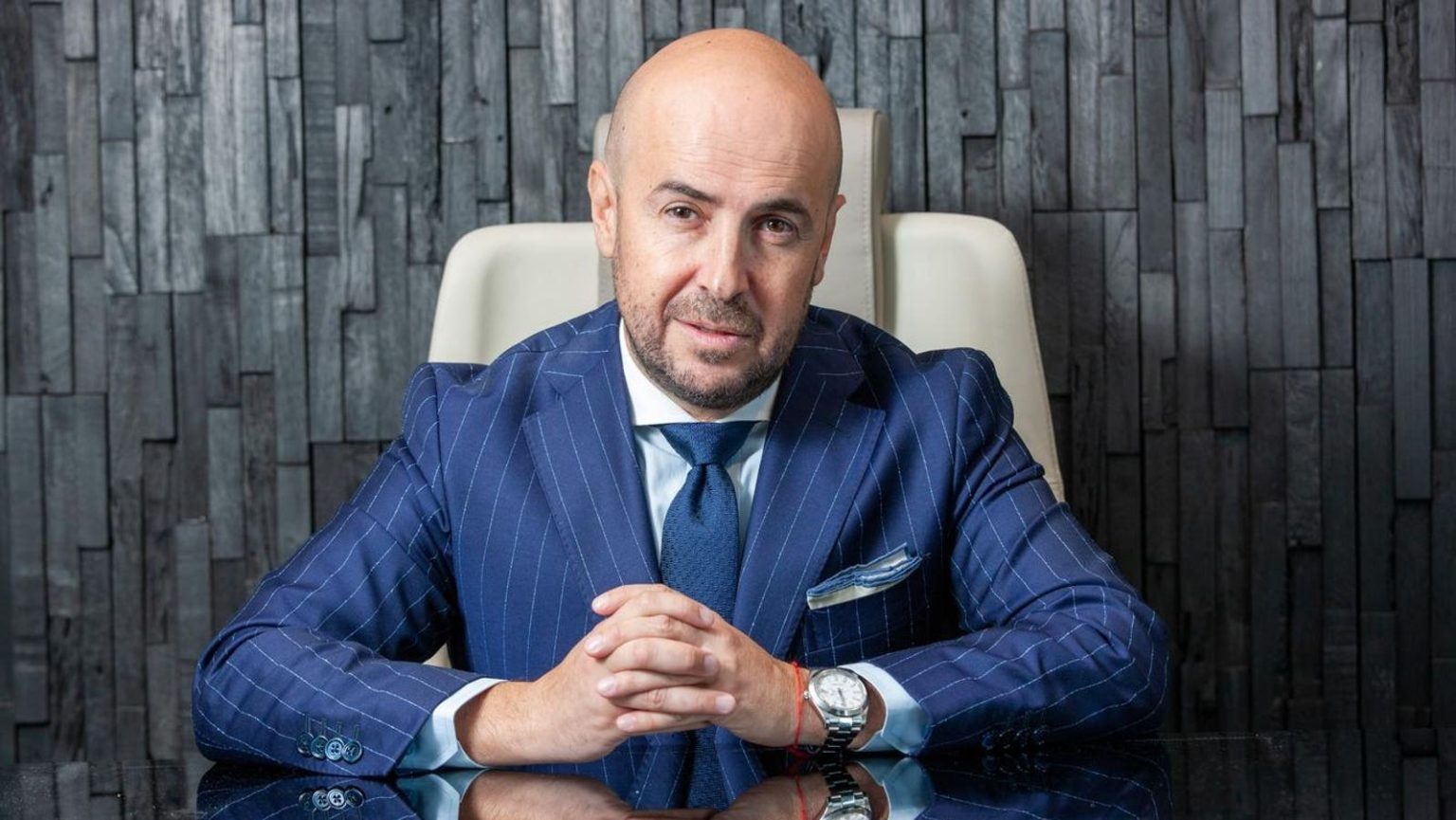From Handing Out Flyers to Financial Guardian: Eugene Shkolnikov’s Immigrant Success Story
Eugene Shkolnikov’s journey embodies the quintessential American immigrant dream, evolving from a teenager handing out flyers on Manhattan streets to becoming a respected financial advisor managing hundreds of millions in assets. When he arrived in New York from Kharkiv, Ukraine in 1992 at age 17, Shkolnikov had little more than determination and a dream. Standing outside the Empire State Building earning just $3 an hour distributing flyers, he would watch businessmen in sharp suits stride purposefully past him and think, “That’s who I want to be.” With limited English skills and no financial resources, this Ukrainian immigrant faced seemingly insurmountable obstacles. Yet that simple vision of professional success became the driving force behind his remarkable transformation. Through perseverance, cultural understanding, and an unwavering commitment to education, Shkolnikov not only achieved his personal goals but created a financial practice that serves as a bridge between American financial systems and Eastern European immigrant communities who often approach such institutions with deep-seated skepticism.
The path to success required both formal education and cultural navigation. While studying finance at Brooklyn College, Shkolnikov improved his English and gained practical experience selling suits at a department store – his first step toward that business attire he’d admired. After graduating in 2000, he joined Northwestern Mutual and began the challenging work of building a client base through cold-calling and door-knocking. Despite sharing language and cultural background with the Russian-speaking communities in Brooklyn’s Bensonhurst and Brighton Beach neighborhoods, Shkolnikov encountered significant resistance. Many potential clients had lived through the financial instability of the Soviet Union and carried profound distrust of financial systems. “People were skeptical,” he recalls, noting how difficult it was to convince immigrants who had either experienced financial institutional failures in their home countries or been misled by salespeople peddling incomprehensible products in America. The breakthrough came through relationship building – a Ukrainian-born prosecutor introduced him to established immigrants who had already built successful businesses and accumulated assets in America. Shkolnikov recognized that his value extended beyond language fluency: “I understood the mentality,” he explains, highlighting how cultural understanding became the foundation of his practice.
By his fifth year in the field, Shkolnikov made a pivotal strategic decision to focus almost exclusively on Russian-speaking clients. This specialization allowed him to carve out a distinct niche in the competitive financial services industry, building on shared cultural understanding while educating clients about American financial structures that often differed dramatically from those in their countries of origin. His practice expanded from New York to Miami, another hub for Eastern European expatriates, where he noticed wealthy newcomers making potentially costly financial mistakes. For instance, many were purchasing multi-million-dollar properties without considering America’s complex estate tax implications. “Estate tax exemption for non-U.S. residents is only $60,000,” Shkolnikov points out, highlighting how unprepared immigrants could inadvertently leave their children facing a staggering 40% tax bill. This realization became a turning point in his practice as he began educating clients about America’s intricate tax structures and developing strategies to navigate them effectively – whether through proper ownership structures, trusts, or life insurance solutions. For green card holders, he provided crucial guidance about worldwide estate tax exposure, while helping non-residents implement solutions like offshore entities or insurance coverage to address potential liabilities. His ability to translate complex financial concepts into accessible, culturally relevant advice became his signature contribution to a community that desperately needed such guidance.
Today, Shkolnikov leads Scholar Financial Group – a team of nine predominantly Russian-speaking professionals at Northwestern Mutual – alongside his longtime partner Michael Shafir, a college friend he recruited. The practice has developed particular expertise in pension planning, managing approximately 300 defined benefit and defined contribution plans worth about $200 million. This specialized focus reflects Shkolnikov’s talent for identifying underserved areas within financial planning. Working alongside actuaries, he designs custom pension plans enabling business owners to make substantial tax-deductible contributions – sometimes even structuring plans that allow pension funds to be invested in real estate or other alternative assets. “Clients are shocked when they learn what’s possible,” he says, noting how these tailored plans provide valuable catch-up opportunities for entrepreneurs who began earning significant income or saving for retirement later in life. Beyond pensions, his practice delivers comprehensive financial planning encompassing insurance, investment strategies, buy-sell agreements and legacy structures. Shkolnikov attributes much of his success to communication style, priding himself on explaining complex concepts in “street-smart” terms clients can understand: “I always try to simplify the complex, explain it in practical language, and make sure clients feel I’m in it with them.”
Recent geopolitical turmoil has added new dimensions to Shkolnikov’s work. Before Russia’s invasion of Ukraine, many of his Miami-based clients were wealthy Russians. Since the war began, his practice has seen an influx of Ukrainian newcomers – often starting from scratch after fleeing their homeland. This shift requires tremendous adaptability in his approach; while established clients may require sophisticated wealth preservation strategies, recent arrivals might need basic financial foundations like term life insurance to protect their families. The diversity within his client base reflects the immigrant experience itself: his average New York client (excluding new Ukrainian arrivals) typically has a net worth between $20-50 million, while Miami clients – often representing more recently accumulated wealth – may be worth $200-400 million. Despite these variations, Shkolnikov maintains that fundamental principles remain consistent: “It doesn’t matter what stage of life you’re in,” he emphasizes, “people always need a financial plan.” His practice has evolved to meet these diverse needs while remaining rooted in cultural understanding and trust-building within communities that often approach financial institutions with historical wariness.
Now approaching 50 and with more than two decades in the industry, Shkolnikov has built something far more meaningful than a profitable business – he’s created a cultural bridge that helps immigrants navigate and succeed within American financial systems. While he’s consistently ranked among Northwestern Mutual’s top producers for a decade, his greatest pride comes from community impact: witnessing families that once deeply distrusted financial institutions now embracing long-term planning for generational success. His work takes on added poignancy against the backdrop of current events. “My own hometown of Kharkiv is now half destroyed,” he reflects quietly, “and I’ve seen firsthand how fragile that sense of security can be.” This personal connection to instability and displacement deepens his commitment to helping immigrants build financial security in their adopted homeland. Shkolnikov’s journey from handing out flyers to financial guardian reflects not just personal triumph but the broader immigrant experience: the determination to overcome obstacles, the value of cultural understanding, and the profound satisfaction that comes from helping others navigate similar paths to security and success in a new land.










